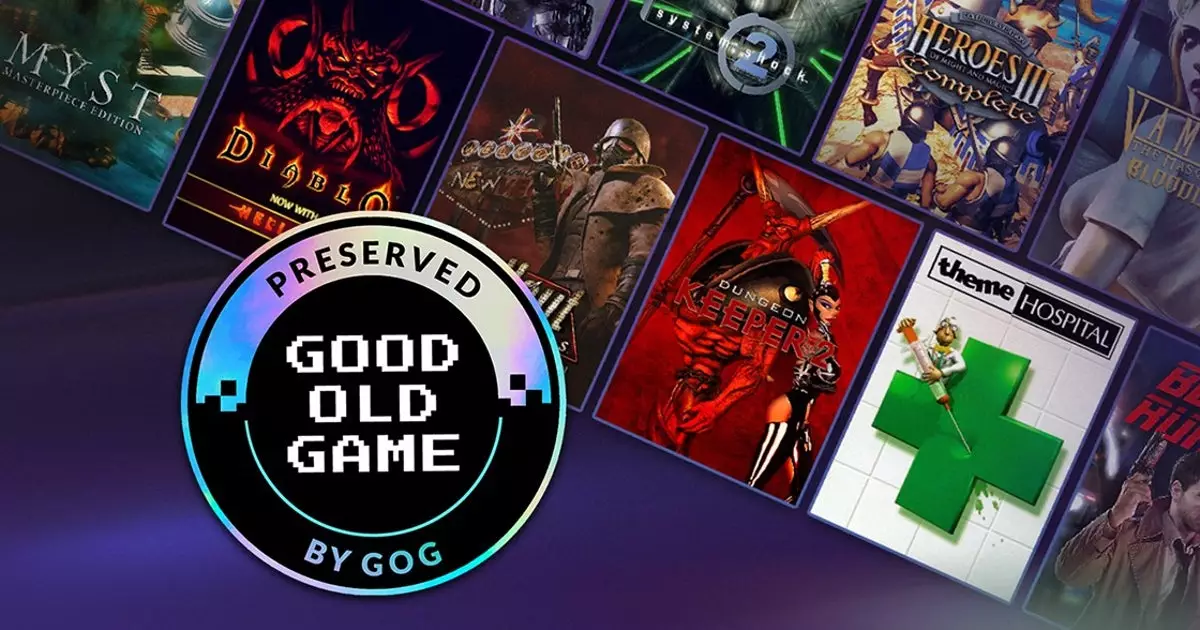The gaming landscape is continuously evolving, with digital storefronts adapting to meet both consumer demands and technological advancements. GOG.com, a platform traditionally known for its extensive library of classic games, has recently announced an intriguing pivot. While they have gradually expanded their offerings to include modern titles, they are now reinvigorating their commitment to game preservation through the GOG Preservation Program. This initiative not only safeguards the legacy of beloved classics but also aims to enhance their compatibility with modern computing environments.
In its early years, GOG carved a niche by providing gamers with access to timeless titles, free from the constraints of digital rights management (DRM). However, the rise of contemporary gaming experiences led them to diversify their catalogue, thereby attracting a broader audience akin to competitors like Steam. Nonetheless, as GOG navigates this shift, they have recognized the importance of their roots in game preservation. The GOG Preservation Program builds on previous efforts to modernize older games, including notable upgrades for Alpha Protocol and the original Resident Evil series. This newfound focus is aligned with similar initiatives from industry giants, emphasizing that game accessibility should coexist with innovation.
Central to the GOG Preservation Program is the introduction of the “Good Old Game” badge. This distinction signals to consumers that a game has undergone comprehensive updates to align with the latest hardware standards. GOG’s dedicated developers are meticulously patching bugs, integrating modern features, and ensuring compatibility with the latest operating systems, such as Windows 10 and 11. This proactive approach eliminates the inefficiencies many gamers face—struggling to modify games with unofficial patches to get them running smoothly on contemporary systems.
For instance, gamers now have access to complete versions of nostalgic titles with bundled downloadable content (DLC), manuals, and multilingual options. Furthermore, GOG’s commitment to offline installers and the absence of DRM rejuvenates the joy of owning a game, ensuring that players can relive the past without unnecessary barriers. With over 100 classic titles set to receive the coveted badge, GOG is making significant strides to reinvigorate cherished games from eras gone by.
While the intention behind the GOG Preservation Program is commendable, the path to successfully restoring these older titles is fraught with challenges. Securing permissions from the original developers can complicate matters, as the interests of publishers and studios may prevent access to game code. Furthermore, restoring a game isn’t merely about bug-fixing; it involves a deep understanding of the technology and systems used at the time of its original release. With many classic games relying on outdated code, GOG’s developers face the daunting task of modernizing them without compromising their intrinsic value and nostalgic appeal.
Moreover, GOG operates with a business model that must prioritize profitability. For every classic title they undertake, there’s a financial consideration weighing on whether the investment into restoration will yield returns. This juxtaposition between preservation and monetization can make it difficult for initiatives like the GOG Preservation Program to flourish without commensurate support from the gaming community and industry stakeholders.
Despite the challenges, GOG’s renewed focus on game preservation arrives at a crucial time, particularly as gaming enthusiasts increasingly express dissatisfaction with publishers who render their favorite titles unplayable through draconian server shutdowns. In a world where access to beloved games can vanish overnight, GOG’s initiative represents a lifeline for gamers eager to celebrate their history.
The long-term prospects of the GOG Preservation Program could foster a new era of nostalgia-driven gaming. By maintaining a healthy pipeline of restored games, GOG not only preserves valuable entertainment but sets a precedent for how classic titles can coexist with modern gaming. As they celebrate the past while embracing the future, GOG encourages both players and developers to acknowledge the significance of timeless classics in shaping the gaming experience.
GOG’s dedication to game restoration through the GOG Preservation Program offers an exciting opportunity for gamers to revisit and enjoy the titles that laid the groundwork for modern gaming. As the program unfolds, it holds the promise of bridging generations of gamers, ensuring that the past remains an integral part of the present and future.


Leave a Reply